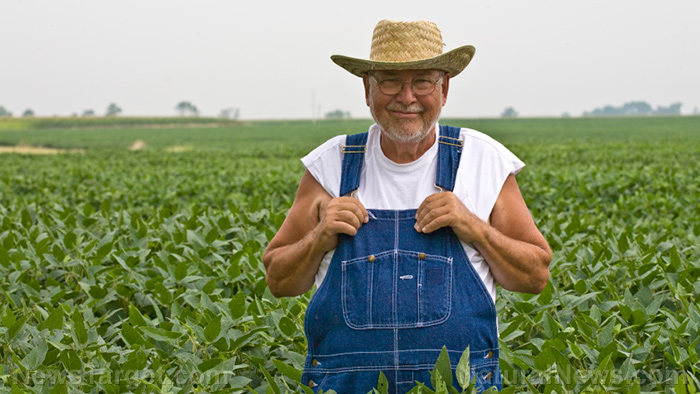Farm work scientifically shown to improve the mental health of veterans… no drugs needed
07/18/2017 / By Isabelle Z.

Veterans often struggle to adapt to life at home after returning from combat, and many doctors are all too quick to throw prescriptions at them to help them cope. However, many veterans are finding that looking outside of medicine can provide safer and more effective coping methods that can last a lifetime.
A recent study shows that care farming can now be added to the list of valuable tools for improving the mental and physical health of veterans. This entails using agricultural landscapes and working farms to help enhance well-being. People take part in horticultural activities and gain useful skills in a green environment in a safe community, which helps their social well-being as well as their mental well-being.
The study, which was published in the Journal of Humanistic Counseling, was small but could nevertheless indicate a potentially useful avenue for helping vets. It looked at five veterans of foreign wars, including one woman. The researchers discovered that care farming increased the life satisfaction in three of the participants and boosted two of the participants’ optimism regarding their future life satisfaction. In addition, two of those studied reported a decrease in perceived loneliness.
Study co-author Dr. Arie Greenleaf likened farming to a sort of “loose group therapy” in which the veterans are working together with other people who have been through similar experiences, which is something that people who have not been in combat cannot really understand. Meanwhile, the open air of a farm gives them the space needed for healing. Perhaps most importantly, however, is the ability to grow life after spending so much time destroying it or watching it be destroyed in war.
This can be far more therapeutic than a lifetime of taking psychiatric drugs and dealing with all of their side effects. A report from Yale University found that a third of all American veterans aged 65 to 85 who are taking psychiatric drugs never even received a mental health diagnosis. It turned out that less than 40 percent of those who were taking the drugs but not receiving mental health treatment actually had legitimate mental illnesses. The researchers reached their conclusions after studying 1.85 million veterans.
The most over prescribed medications were antidepressants and mood stabilizers, both of which can make patients suicidal and have a host of other negative effects. It appears that doctors are simply too willing to prescribe drugs at the first sign of trauma instead of exploring other options.
PTSD is more common than you think
According to PTSD United, around eight percent of Americans have PTSD at any given time, which is equal to around 24.4 million people. It affects not only those with combat experience but also those who have survived natural disasters, abuse, emotional losses, terrorist attacks, and serious accidents.
As more stories of the dangers and inefficacy of antidepressants come to light, some veterans are seeking safer alternatives. Care farming isn’t the only approach that can be useful. Some vets have found that experiencing nature in other ways can also help them deal with post-traumatic stress disorder. For example, spending time with pets and hiking outdoors offers many of the same benefits as care farming. Even walking outside in nature for 15 to 20 minutes releases endorphins like oxytocin, which promote better mood, and it can also help people improve their quality of sleep. Yoga has also proven to be helpful, and it can be practiced outdoors as well.
It’s not just veterans who can benefit from care farming; this type of activity could also help people dealing with other mental struggles to improve their well-being. According to Care Farming UK, this type of activity can be useful for children and adults with mild to moderate depression, autism, learning disabilities, and addictions. Gardening and horticultural therapy in the fresh air are being increasingly used to help those with stroke recovery and social disabilities as well as dementia.
Sources include:
Tagged Under: care farming, depression, fam work, holistic medicine, horticultural therapy, PTSD, PTSD treatment, veterans
RECENT NEWS & ARTICLES
COPYRIGHT © 2017 BRAIN NEWS


















